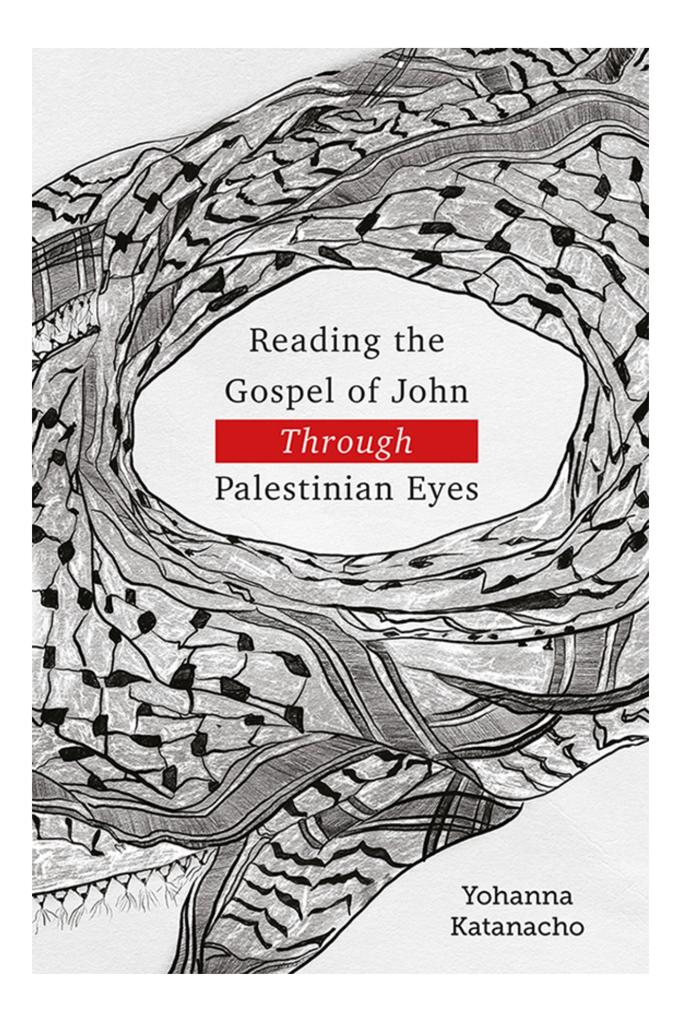
Previous Reading the Gospel of John through Palestinian Eyes

By: George B. Sahhar
Leadership is inherently value-based, and values amount to the difference between leaders and spectators. Inspiring people see the light due to a certain value system, then they differentiate their actions from others; and embark on the unprecedented, arduous, and less-charted path. Eventually, the spectators see the merit of the new path and come to appreciate, with amazement, the leaders’ contribution to fellow human beings, to society at large, and to incrementally make the world a better place one difference at a time.
Today I want to address leadership in from a Christian perspective. The history of our land, Palestine, has had plenty of Christians who made a difference. To me, the inspiration is double fold, these are people who served the cause of Palestine and stood up for patriotic reasons against injustice since the Balfour Declaration and the Nakba. Also, they did so because their Christian value system calls upon them to speak truth to power. They challenged a world that imitates the three monkeys who are deaf, dumb, and mute, and they were a lone voice shouting in the wilderness. I will not attempt to list names, because they are so many, women and men, who kept hope alive, one generation after the other, on the path to salvation when Palestine becomes free from oppression and tyranny. Such leadership did two things: mitigated the impact of the past, laid the foundation, and kept the dream alive until the day comes when justice flows like a mighty river.
Palestinian Christians served the Palestinian cause because their Christian value system calls upon them to speak truth to power
In behaving according to Christian values, Christian contributors to the cause of Palestine resisted injustice creatively. I find it interesting that after two thousand years of Christianity, it is still considered a creative tool of resistance. This speaks to the ingenuity of Christian values.
A new approach is necessary, Christian leadership must be recognized for what it is: as Christian and as Palestinian, and there is no need to identify which one comes first because both are important.
In classrooms, the youth are often taught leadership coupled with communication skills, leadership with finance, or leadership with women’s rights, and on and on, but not much is done in the field of training with the bible in one hand and leadership skills books in the other. Lacking is a significant effort to teach the youth Christianity-based leadership.
Regrettably, there has not been much documentation of the role Christians played in resisting Israeli occupation from the prism of them being Christians. This is necessary not only for documenting the past but also for inspiring the future. Such leaders are always seen through the prism of nationalism, academia, political parties, civil society activism, education, and a host of other paradigms, but never through their Christian paradigm- that they did it because they are Christians, and because the DNA of their value-system calls upon them to resist injustice. A new approach is necessary, to give Palestinian Christianity the credit it deserves for making certain people leaders who helped their society.
We need to move beyond what I describe as the identity trauma created by the Nakba. Colonialist settlers came to Palestine under the guise of the Bible, and they received lots of support worldwide because of that. Palestinian Christians reacted by isolating themselves behind Arab nationalism and were unable to identify themselves as Christian leaders lest they would be misunderstood. In many ways, they hid their Christian identity and accentuated their Palestinian Arab identity. Well, this must stop. Christians, over the many years of the struggle for Palestine’s freedom, have proven themselves loyal to the cause. Things must change, and Christian leadership must be recognized for what it is: as Christian and as Palestinian, and there is no need to identify which one comes first because both are important. This call is by no means isolationist or condescending. It is vital for the construction of a pluralistic Palestine; and for strengthening even more the partnership with our Muslim brethren and compatriots.
***********************************************************************************************
George B. Sahhar is a Palestinian who resides in occupied Jerusalem. He is a career person in advocacy and communication, and program design, and has worked as a consultant for international and UN organizations. George has led the communication and advocacy effort on behalf of some of the largest projects implemented in Palestine. He has also scored high recognition at the international and regional levels due to the programs he led. George is also a trainer in communication and advocacy skills and is a simultaneous interpreter
George has his M.A. in Speech Communication from the University of Northern Iowa; and his B.A. in Speech Communication and B.Sc. in Political Science from Iowa State University, USA.


تكافح مجلة “ملح الأرض” من أجل الاستمرار في نشر تقارير تعرض أحوال المسيحيين العرب في الأردن وفلسطين ومناطق الجليل، ونحرص على تقديم مواضيع تزوّد قراءنا بمعلومات مفيدة لهم ، بالاعتماد على مصادر موثوقة، كما تركّز معظم اهتمامها على البحث عن التحديات التي تواجه المكون المسيحي في بلادنا، لنبقى كما نحن دائماً صوت مسيحي وطني حر يحترم رجال الدين وكنائسنا ولكن يرفض احتكار الحقيقة ويبحث عنها تماشيًا مع قول السيد المسيح و تعرفون الحق والحق يحرركم
من مبادئنا حرية التعبير للعلمانيين بصورة تكميلية لرأي الإكليروس الذي نحترمه. كما نؤيد بدون خجل الدعوة الكتابية للمساواة في أمور هامة مثل الإرث للمسيحيين وأهمية التوعية وتقديم النصح للمقبلين على الزواج وندعم العمل الاجتماعي ونشطاء المجتمع المدني المسيحيين و نحاول أن نسلط الضوء على قصص النجاح غير ناسيين من هم بحاجة للمساعدة الإنسانية والصحية والنفسية وغيرها.
والسبيل الوحيد للخروج من هذا الوضع هو بالتواصل والنقاش الحر، حول هويّاتنا وحول التغييرات التي نريدها في مجتمعاتنا، من أجل أن نفهم بشكل أفضل القوى التي تؤثّر في مجتمعاتنا،.
تستمر ملح الأرض في تشكيل مساحة افتراضية تُطرح فيها الأفكار بحرّية لتشكل ملاذاً مؤقتاً لنا بينما تبقى المساحات الحقيقية في ساحاتنا وشوارعنا بعيدة المنال.
كل مساهماتكم تُدفع لكتّابنا، وهم شباب وشابات يتحدّون المخاطر ليرووا قصصنا.